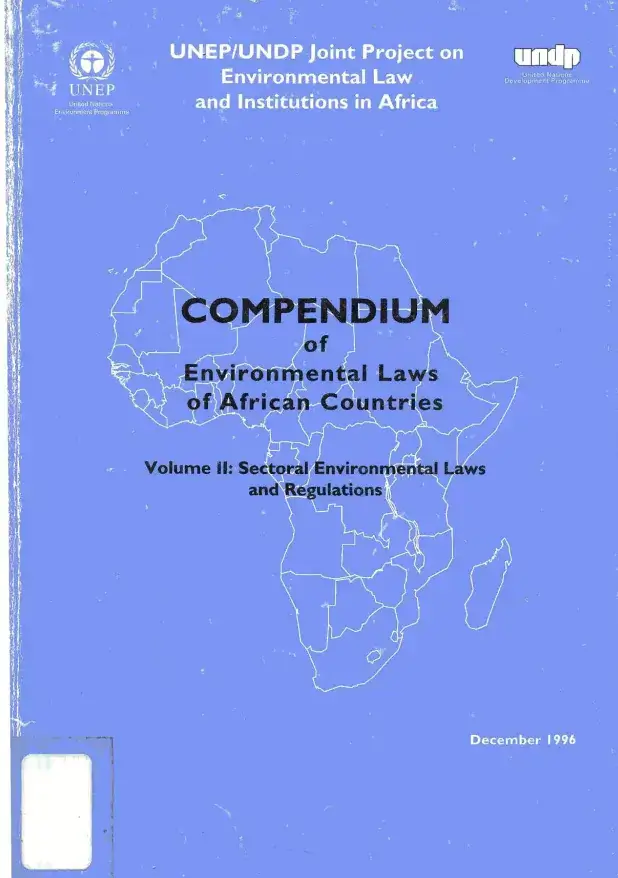The Compendium of Environmental Law of African Countries is prepared by ELLIPAC under the auspices of
the UNEP/UNDP Joint Project on Environmental Law and Institutions in Africa which is funded by the Dutch Government. The objective of the Joint Project is to mobilize the expertise and guidance of six different agencies in
working with selected African countries towards the enhancement of their legal and institutional capabilities in the
field of environmental law. The agencies involved in this exercise are UNEP, IJNDP, FAO, The World Bank, the
IUCN and the WHO, all of which constitute the Project’s Steering Committee.
Eight African countries were selected for the first phase of the project. Activities which are national in character have commenced in Burkina Faso, Malawi. Mozambique and Sao Tome and Principe. The project’s work has also
commenced in Kenya, Tanzania and Uganda, except that here the focus is on issues of sub-regional character and the concentration is on harmonization of laws and standards to deal with the priority subjects, identified by the respective countries together. Except for consultations with UNDP, Pretoria mainly no activities have commenced in South Africa where the national concern hitherto has been the evolution of the new constitution and the development of a national environmental policy, both essential for subsequent work on the structure of the national and provincial environmental laws.
The necessity for the compendium has been increasingly evident during the foregoing activities, particularly given the modus operandi in the project. The approach seeks to operationalize the concept of capacity building by involving the nationals of the project countries in the assessment of their environmental problems, review of the
existing environmental laws and drafting of new and streamlined statutes consistent with the modern philosophy and
enforcement of environmental law.

